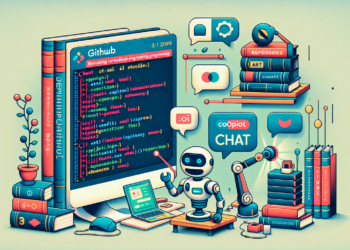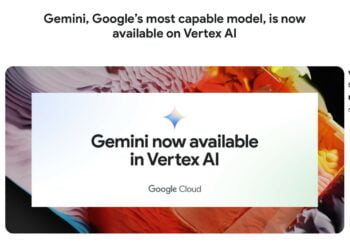Artificial intelligence (AI) has been the focus of cutting-edge research and development in recent decades, establishing itself as a key discipline driving innovation in various sectors of society. In the quest for substantial advancements, tech giants like Google have funded and developed ambitious projects aimed at reshaping the AI landscape. One such project, named Gemini, poses particularly intriguing challenges for the scientific community and the tech industry.
Gemini: Innovation in Natural Language Processing Models
Gemini is a Google initiative focused on natural language processing (NLP) models with the goal of overcoming current limitations in text comprehension and generation. This project falls within a broader strategy by the company to lead the tech race towards more generalist and autonomous AI.Architecture and Underlying Technology
Gemini’s architecture incorporates deep learning techniques built upon the family of Transformer models, which includes BERT (Bidirectional Encoder Representations from Transformers) and GPT (Generative Pretrained Transformer). However, Gemini introduces significant innovations in terms of neural network architecture, such as the implementation of multi-scale attention mechanisms and the integration of global knowledge bases in training, optimizing the contextualized processing of information.One of the technical particulars of Gemini is its advanced use of Attention Masking, which allows the model to dynamically focus on different parts of the text for a deeper understanding of it. This is complemented by Knowledge Distillation techniques to reduce latency and improve the efficiency of models when running on different platforms.Enhanced Text Comprehension and Generation
Compared to its predecessors, Gemini models demonstrate an increased ability to comprehend and generate text with a much higher degree of coherence, relevance, and specificity. The system is designed to handle linguistic ambiguities with better context interpretation, leading to more precise responses in NLP tasks.Training and Implementation
Training models on the scale of Gemini requires a massive amount of data and computational resources. Google has applied distributed training techniques and hyperparameter optimization to accelerate this process. Additionally, special attention has been given to the implementation of training strategies that mitigate biases found in data sets.Knowledge Transfer
In Gemini, the transfer of knowledge across different domains and languages has become more efficient through the use of shared semantic embeddings and modular adapters that enable the model to generalize previous learning to new contexts with a minimal number of training examples.Emerging Applications and Case Studies
Various industries have shown interest in applying Gemini’s capabilities in real-world scenarios. One of the most significant cases has been its implementation in autonomous summary generation for academic articles. Compared to previous systems, Gemini has demonstrated a remarkable ability to synthesize key information and present it coherently and contextually.Another practical application of Gemini is in the creation of advanced virtual assistants. These systems are capable of conducting more natural dialogues, understanding nuances and subtexts in user requests, significantly improving human-machine interaction and end-user satisfaction.Ethical and Social Challenges
A crucial issue with advanced models like Gemini is ethics in artificial intelligence, specifically in regards to the handling of personal data and the proliferation of misinformation. It is critical that developments like Gemini incorporate control mechanisms that ensure respect for privacy and promote the veracity of the information generated.Future Outlook
Looking to the future, Gemini is expected to serve as a foundation for new advancements in generalist AI, opening possibilities in areas such as the integration of different data modalities (text, image, sound) into a single cognitive processing framework. Additionally, Gemini is anticipated to influence the development of causal inference algorithms and the improvement of robustness and transparency in NLP models.In conclusion, Google’s Gemini represents a significant commitment to the progress of artificial intelligence systems, particularly natural language processing. With its ability to process and generate text more effectively, this project not only offers immediate practical improvements but also sets a paradigm that could reshape the way machines understand and interact with the human world.Ongoing research and emerging applications of Gemini have the potential to catalyze transformative change in multiple sectors, highlighting the importance of maintaining a continuous dialogue between technological innovation and ethical considerations. With its approach to generalist AI, Gemini aims not only to be a milestone in Google’s history but also in the evolution of artificial intelligence as a whole.Gemini Versions
Google Gemini has been launched in three distinct versions, each suitable for different applications:- Gemini Ultra: Designed for highly complex tasks, it is the largest model in the series.
- Gemini Pro: Versatile across a wide range of tasks.
- Gemini Nano: Optimized for mobile devices and less demanding applications.






















